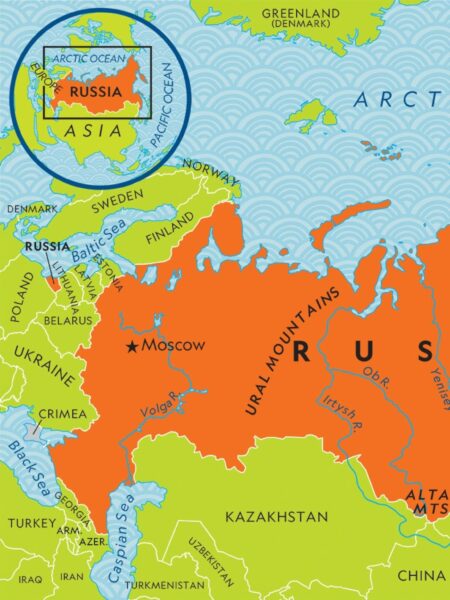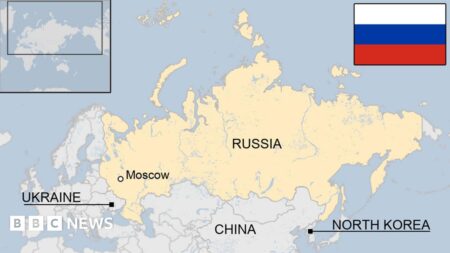In a provocative statement that echoes broader debates surrounding judicial power and political accountability,Brazilian President Jair Bolsonaro has condemned a recent ruling against French far-right leader Marine Le Pen as an instance of “judicial activism.” In remarks that highlight the tensions between political leaders and the judiciary, Bolsonaro’s comments reflect not only his alignment with nationalist sentiments but also reveal the growing concerns that politicians have about judicial interventions in electoral processes. This article explores Bolsonaro’s position, the implications for le Pen’s political future, and the potential ramifications for the relationship between the judiciary and political entities in both Brazil and Europe. With the rise of populist leaders and increasing scrutiny of judicial overreach, Bolsonaro’s remarks resonate with a global audience grappling with similar issues in their own political landscapes.
Bolsonaro’s Critique of Judicial Activism in European Politics
During a recent statement, former Brazilian President Jair Bolsonaro expressed his strong disapproval of what he termed ”judicial activism,” particularly in the European political landscape. He specifically referenced the ruling against Marine Le Pen, characterizing it as an overreach of judicial power that undermines democratic principles. Bolsonaro highlighted a concerning trend where judicial decisions appear to bypass the electorate’s will, telling reporters that such actions “silence voices that should be heard in a democracy.” This sentiment resonates with his broader critique of how judicial systems are perceived to influence political outcomes in a manner that could be detrimental to voter rights.
Bolsonaro’s comments reflect a growing unease among political leaders around the world regarding the role of the judiciary in shaping political discourse. His remarks underline a few key points of contention:
- Judicial Oversight: Concerns about judges making politically charged decisions that should be reserved for elected officials.
- Voter Empowerment: The belief that voters should have the ultimate say in their political representation, rather than being overridden by judicial mandates.
- Global Accountability: A call for greater scrutiny of how judicial systems operate across different nations, especially in contexts where democratic norms are in question.
Implications of Brazil’s Stance on Global Political Dynamics
The recent comments made by Brazilian President Jair Bolsonaro regarding the ruling against Marine Le Pen illustrate the growing meaning of Brazil on the global stage, particularly in the context of right-wing political movements. bolsonaro’s labeling of the court’s decision as “judicial activism” resonates with similar rhetoric employed by populist leaders in Europe and the Americas, forging a narrative that portrays judicial systems as adversaries to political will. This alignment not only serves to bolster his domestic support among right-wing constituents but also emphasizes Brazil’s influence in shaping a transnational coalition of populism and nationalism.
As Brazil continues to carve out its niche in global politics, its stance may have far-reaching implications, reinforcing a pattern of anti-establishment sentiment.Observers may note the following potential outcomes:
- Strengthening of Populist Alliances: Brazil’s support for figures like Le Pen could lead to the formation of stronger political alliances among right-wing leaders worldwide.
- Impact on Diplomatic Relations: Enhanced camaraderie might result in shifting allegiances, with countries reevaluating their diplomatic ties based on ideological proximity.
- Influence on Domestic Politics: Bolsonaro’s rhetoric could embolden similar narratives in other nations, potentially leading to increased political instability.
Analyzing the Legal Landscape: Judicial Activism in Contemporary Governance
The recent comments by Brazil’s President Jair Bolsonaro regarding a ruling against French political figure Marine Le Pen have reignited discussions about the role of judicial activism in contemporary governance. Bolsonaro’s characterization of the ruling as judicial activism underscores a growing tension in various democracies, where the judiciary is perceived to overstep its bounds, influencing policy decisions that many believe should be left to the legislative branch. This phenomenon raises essential questions about the balance of power and the appropriate limits of judicial intervention in political matters.
judicial activism ofen manifests in various forms, leading to polarized opinions among lawmakers, scholars, and the public. Some argue that it serves as a necessary check against legislative overreach or injustices, while others view it as an erosion of democratic principles.Key points of consideration include:
- Impact on Legislation: How judicial decisions shape, alter, or nullify laws passed by democratically elected bodies.
- Public Trust: The potential erosion of public confidence in judicial systems when rulings are perceived as politically charged.
- International Perspectives: Different nations’ approaches to the role of judiciary in governance and its implications for democracy.
| Aspect | Judicial Activism | Judicial Restraint |
|---|---|---|
| Definition | Active role in policy change | Minimal interference with legislatures |
| Examples | Landmark civil rights cases | Upholding existing laws without alteration |
| Criticism | Overreach into political domains | Failure to protect minority rights |
Recommendations for Strengthening Judicial Independence and Political Accountability
To enhance the impartiality of the judiciary and ensure that political entities remain accountable to the populace, several strategic measures need to be implemented. First and foremost, the establishment of clear and transparent procedures for judicial appointments is crucial. This can be achieved through the formation of independent commissions composed of legal experts, civil society representatives, and scholars to vet candidates based on merit rather than political affiliations. Moreover,legislative frameworks should be strengthened to limit undue influences from both the executive and legislative branches,thereby fostering an environment where judges can operate without fear of reprisal or pressure.
In addition to procedural reforms, public awareness campaigns on the importance of judicial independence are essential.promoting civic education regarding the role of the judiciary in a democratic society can empower citizens to defend these institutions from political encroachments. Another meaningful step is the introduction of accountability mechanisms for public officials, including stricter penalties for those who attempt to undermine judicial processes. Implementing these measures can create a more resilient democratic framework, promoting justice and fairness in governance.
In Conclusion
Jair Bolsonaro’s comments on the recent ruling against French politician Marine Le Pen underscore the complexities of international political dynamics and the varying interpretations of judicial authority. By characterizing the court’s decision as “judicial activism,” Bolsonaro aligns himself with a broader narrative that questions the boundaries of judicial intervention in political matters. As political figures around the world grapple with similar issues, the implications of bolsonaro’s statements may resonate beyond Brazil and France, prompting discussions on the role of the judiciary in safeguarding democratic values versus political interests. As developments unfold,it will be pivotal to monitor how these sentiments influence both domestic and international political landscapes in the months to come.




